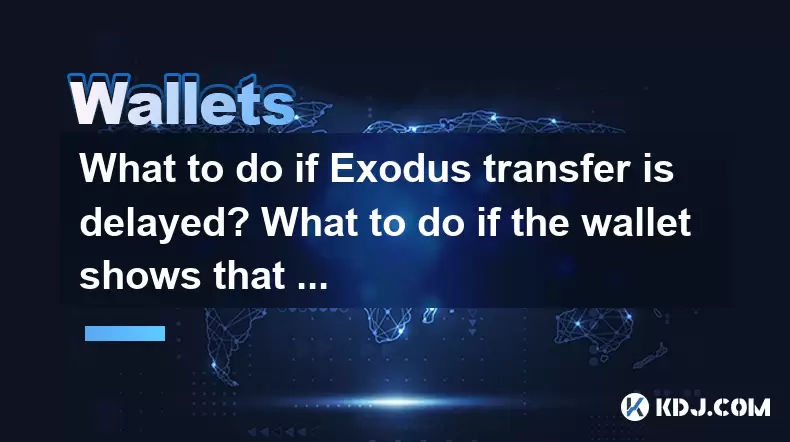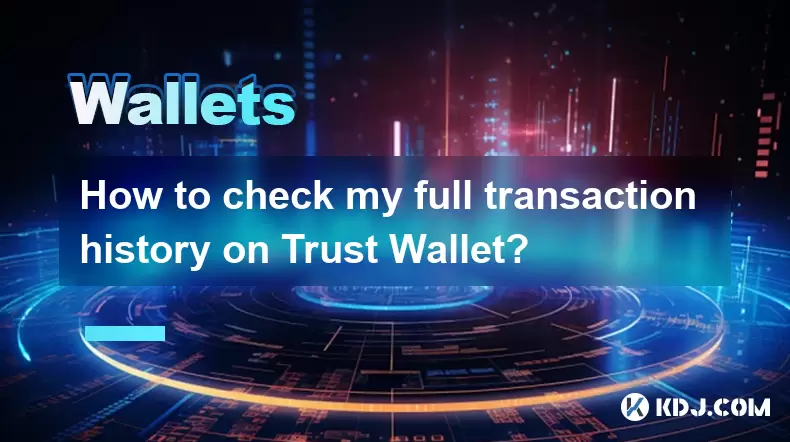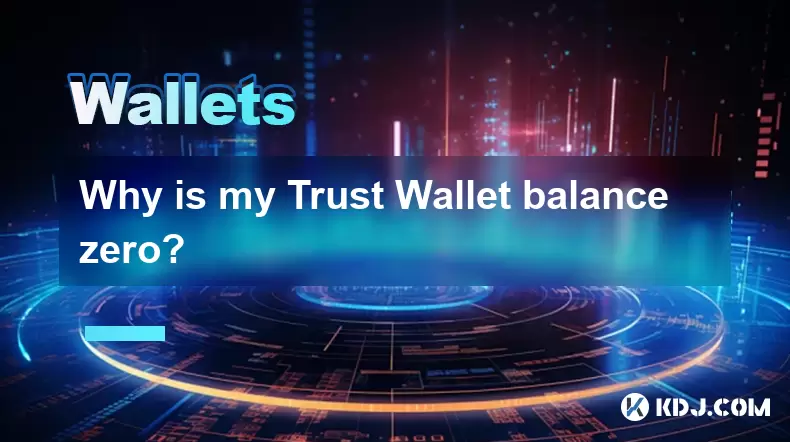-
 Bitcoin
Bitcoin $112400
-1.07% -
 Ethereum
Ethereum $3409
-3.27% -
 XRP
XRP $2.784
-6.60% -
 Tether USDt
Tether USDt $0.9997
-0.03% -
 BNB
BNB $739.3
-2.09% -
 Solana
Solana $158.0
-2.90% -
 USDC
USDC $0.9998
-0.02% -
 TRON
TRON $0.3213
-0.94% -
 Dogecoin
Dogecoin $0.1929
-5.01% -
 Cardano
Cardano $0.6974
-2.82% -
 Hyperliquid
Hyperliquid $36.69
-2.31% -
 Sui
Sui $3.327
-4.80% -
 Stellar
Stellar $0.3672
-5.18% -
 Chainlink
Chainlink $15.65
-3.07% -
 Bitcoin Cash
Bitcoin Cash $525.0
-1.68% -
 Hedera
Hedera $0.2291
-6.00% -
 Avalanche
Avalanche $20.91
-2.96% -
 Ethena USDe
Ethena USDe $1.000
0.00% -
 Toncoin
Toncoin $3.520
-1.12% -
 UNUS SED LEO
UNUS SED LEO $8.968
0.14% -
 Litecoin
Litecoin $105.7
0.26% -
 Shiba Inu
Shiba Inu $0.00001181
-1.79% -
 Polkadot
Polkadot $3.492
-2.08% -
 Uniswap
Uniswap $8.800
-3.10% -
 Dai
Dai $0.9999
-0.01% -
 Monero
Monero $289.9
-3.17% -
 Bitget Token
Bitget Token $4.243
-1.27% -
 Pepe
Pepe $0.00001006
-3.67% -
 Cronos
Cronos $0.1248
-5.68% -
 Aave
Aave $249.7
-2.50%
What to do if Exodus transfer is delayed? What to do if the wallet shows that it has not been received?
If your Exodus transfer is delayed or funds are not received, check the transaction status, verify the wallet address, and contact support for efficient resolution.
May 19, 2025 at 05:43 am

If you are experiencing a delayed transfer or your wallet shows that funds have not been received in Exodus, it can be a stressful situation. However, there are several steps you can take to address these issues effectively. This article will guide you through the process of troubleshooting delayed transfers and non-received funds in Exodus, ensuring you can resolve the problem efficiently.
Understanding Exodus Transfers
Before diving into the solutions, it's important to understand how transfers work in Exodus. Exodus is a multi-currency wallet that supports a variety of cryptocurrencies. When you initiate a transfer, the transaction is broadcast to the respective blockchain network. The speed of the transaction can vary based on network congestion, transaction fees, and the specific cryptocurrency being transferred.
Checking Transaction Status
The first step to take if you experience a delayed transfer is to check the transaction status. Here's how you can do it:
- Open Exodus and navigate to the wallet that sent the transaction.
- Click on the transaction in the transaction history.
- Copy the transaction ID (TXID).
- Use a blockchain explorer specific to the cryptocurrency you sent. For example, use Blockchain.com for Bitcoin or Etherscan.io for Ethereum.
- Paste the TXID into the search bar of the blockchain explorer and hit enter.
If the transaction appears on the blockchain explorer but is still pending, it may be due to high network congestion or low transaction fees. If the transaction does not appear on the blockchain explorer, it may not have been broadcast to the network yet.
Contacting Exodus Support
If the transaction status check does not resolve your issue, the next step is to contact Exodus support. Here’s how to reach out:
- Visit the Exodus support page on their official website.
- Submit a support ticket detailing your issue, including the TXID and any relevant information.
- Wait for a response from the support team, who can provide more specific guidance based on your situation.
Verifying Wallet Address
If your wallet shows that funds have not been received, it’s crucial to verify the wallet address. Here’s how to do it:
- Check the receiving address in your Exodus wallet to ensure it matches the address you provided to the sender.
- Double-check for any typos or errors in the address.
- If you used a different wallet, ensure that the address is correctly added to your Exodus wallet.
Checking for Network Congestion
Sometimes, delays can be attributed to network congestion. This is particularly common with popular cryptocurrencies like Bitcoin and Ethereum. To check for network congestion:
- Visit a blockchain analytics site like BitInfoCharts or Etherscan.
- Look at the current block time and transaction backlog to gauge the level of congestion.
- Consider using a different cryptocurrency with lower network congestion if the delay is significant.
Adjusting Transaction Fees
If you find that your transaction is stuck due to low fees, you may need to adjust the transaction fees. Here’s how to do it:
- If the transaction is still pending, you can attempt to speed it up by increasing the fee.
- Some blockchains support Replace-By-Fee (RBF) or Child Pays For Parent (CPFP) mechanisms. Check if the cryptocurrency you are using supports these features.
- For RBF, you can create a new transaction with a higher fee that replaces the original transaction.
- For CPFP, you can create a new transaction that spends the output of the stuck transaction, thereby increasing the total fee.
Ensuring Wallet Software is Up-to-Date
An outdated wallet software can sometimes cause issues with transactions. To ensure your Exodus wallet is up-to-date:
- Open Exodus and navigate to the settings.
- Check for updates and install any available updates.
- Restart the wallet after the update to ensure all changes are applied.
Frequently Asked Questions
Q: Can I cancel a delayed transaction in Exodus?
A: It depends on the cryptocurrency and the blockchain's rules. Some cryptocurrencies support transaction cancellation through mechanisms like RBF, but others do not. You should contact Exodus support for specific guidance on your situation.
Q: How long should I wait before considering a transaction delayed in Exodus?
A: The wait time can vary depending on the cryptocurrency. For Bitcoin, transactions can take anywhere from 10 minutes to several hours during high congestion. Ethereum transactions typically take 15 seconds to 5 minutes but can also be delayed during peak times. If a transaction has not confirmed within 24 hours, it is generally considered delayed.
Q: What should I do if I accidentally sent funds to the wrong address in Exodus?
A: Unfortunately, blockchain transactions are irreversible. If you sent funds to the wrong address, you should immediately contact the recipient if possible. If not, you should reach out to Exodus support for further assistance, though recovery is not guaranteed.
Q: Can I recover funds if they are stuck in a transaction in Exodus?
A: Recovery of stuck funds depends on the specific situation. If the transaction is still pending, you might be able to speed it up by adjusting fees. If the transaction has disappeared from the network, you should contact Exodus support for help in recovering the funds, though success is not guaranteed.
Disclaimer:info@kdj.com
The information provided is not trading advice. kdj.com does not assume any responsibility for any investments made based on the information provided in this article. Cryptocurrencies are highly volatile and it is highly recommended that you invest with caution after thorough research!
If you believe that the content used on this website infringes your copyright, please contact us immediately (info@kdj.com) and we will delete it promptly.
- Shiba Inu's Successor? Ruvi AI's ROI Forecast Turns Heads
- 2025-08-03 06:30:12
- Ruvi AI vs. Tron: Can AI Outpace the Crypto Giant on CoinMarketCap?
- 2025-08-03 07:10:12
- XRP ETF Hopes Fuel Altcoin Frenzy: Solana, Pi Coin, and the Next Big Thing
- 2025-08-03 07:10:12
- Price Prediction Palooza: Breakouts, Retests, and a Sprinkle of Crypto Magic
- 2025-08-03 06:35:12
- Ruvi AI: The AI Token on Cardano Set to Dominate After CMC Listing
- 2025-08-03 04:50:12
- Altcoins in the Spotlight: Cardano, Shiba Inu, and the Quest for Crypto Supremacy
- 2025-08-03 05:30:12
Related knowledge

What is a watch-only wallet in Trust Wallet?
Aug 02,2025 at 03:36am
Understanding the Concept of a Watch-Only WalletA watch-only wallet in Trust Wallet allows users to monitor a cryptocurrency address without having ac...

How to fix a stuck pending transaction in Trust Wallet?
Aug 03,2025 at 06:14am
Understanding Why Transactions Get Stuck in Trust WalletWhen using Trust Wallet, users may occasionally encounter a pending transaction that appears t...

What is a multi-coin wallet in Trust Wallet?
Aug 03,2025 at 04:43am
Understanding Multi-Coin Wallets in Trust WalletA multi-coin wallet in Trust Wallet refers to a digital wallet that supports multiple cryptocurrencies...

How to switch between networks in Trust Wallet?
Aug 02,2025 at 12:36pm
Understanding Network Switching in Trust WalletSwitching between networks in Trust Wallet allows users to manage assets across different blockchains s...

How to check my full transaction history on Trust Wallet?
Aug 02,2025 at 09:24am
Understanding Transaction History in Trust WalletTrust Wallet is a widely used non-custodial cryptocurrency wallet that supports a broad range of bloc...

Why is my Trust Wallet balance zero?
Aug 02,2025 at 03:49am
Understanding Trust Wallet Balance Display IssuesIf you're seeing a zero balance in your Trust Wallet despite knowing you've previously received or se...

What is a watch-only wallet in Trust Wallet?
Aug 02,2025 at 03:36am
Understanding the Concept of a Watch-Only WalletA watch-only wallet in Trust Wallet allows users to monitor a cryptocurrency address without having ac...

How to fix a stuck pending transaction in Trust Wallet?
Aug 03,2025 at 06:14am
Understanding Why Transactions Get Stuck in Trust WalletWhen using Trust Wallet, users may occasionally encounter a pending transaction that appears t...

What is a multi-coin wallet in Trust Wallet?
Aug 03,2025 at 04:43am
Understanding Multi-Coin Wallets in Trust WalletA multi-coin wallet in Trust Wallet refers to a digital wallet that supports multiple cryptocurrencies...

How to switch between networks in Trust Wallet?
Aug 02,2025 at 12:36pm
Understanding Network Switching in Trust WalletSwitching between networks in Trust Wallet allows users to manage assets across different blockchains s...

How to check my full transaction history on Trust Wallet?
Aug 02,2025 at 09:24am
Understanding Transaction History in Trust WalletTrust Wallet is a widely used non-custodial cryptocurrency wallet that supports a broad range of bloc...

Why is my Trust Wallet balance zero?
Aug 02,2025 at 03:49am
Understanding Trust Wallet Balance Display IssuesIf you're seeing a zero balance in your Trust Wallet despite knowing you've previously received or se...
See all articles

























































































